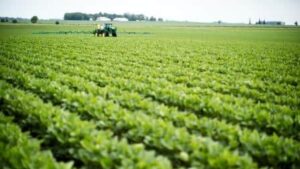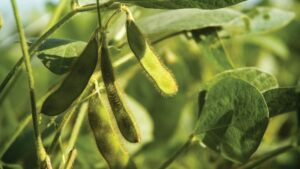It’s been almost two weeks since the U.S. Ninth Circuit Court of Appeals made the decision to vacate three dicamba registrations: Bayer’s XtendiMax, BASF’s Engenia and Corteva’s FeXapan.
Now, companies are beginning to respond.
On June 12, Corteva announced that it would be filing a motion to intervene in the U.S. Ninth Circuit Court of Appeals case challenging the U.S. Environmental Protection Agency (EPA) registration of the dicamba herbicide marketed as XtendiMax Herbicide with VaporGrip Technology.
Corteva is seeking to intervene to preserve their rights and to support the rights of customers to use the impacted dicamba weed control technologies.
“We believe dicamba is an effective weed management tool for farmers when used according to the label,” the company said in a release. “We also seek to preserve the role of the U.S. EPA to administer the Federal Insecticide, Fungicide & Rodenticide Act (FIFRA), including granting or cancelling crop protection product registrations, for the benefit of agriculture and society.”
In addition, BASF has also filed a motion to intervene following the decision.
BASF has now made the request to intervene after careful consideration of the sudden and severe financial impact vacating the registration has had on farmers during this critical application time.
“The Ninth Circuit’s decision has caused immediate chaos among the agricultural community and threatens the livelihood of countless U.S. farmers,” BASF said in a release. “Seeking to make matters worse, the challengers have now asked the Ninth Circuit to undo the EPA’s order which implemented the panel’s decision and addressed the uncertainty it caused. BASF must act to protect its interests and those of its customers.”
“Taking this action during the height of the application season gives no regard to the significant investments farmers have made in their businesses and leaves them without viable options for the growing season,” said Paul Rea, senior vice president, BASF Agricultural Solutions North America. “Farming is difficult even in the best of times and remains challenging. Making this decision now, when weed resistance continues to threaten farming operations, is disastrous for our customers. Farmers have counted on applications of dicamba-based products to control troublesome weeds for decades, and they continue to need these tools now and in the future.”
In addition, BASF will also continue to pursue EPA re-registration of Engenia for the coming seasons.













